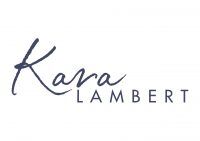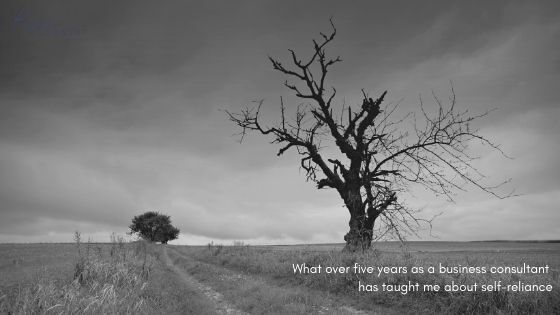The tyranny of being a small business owner is that we want to be self-reliant and at the start this self-reliance is pretty much all we have. At the start of my own journey I had to do it all. Over time I’ve seen and learnt many things about being self-reliant and I wanted to share them with you.
What is self-reliance
Self-reliance is generally understood as our reliance on our own abilities and resources than those of others.
As a small business owner, this has self-reliance looking more like us wearing many hats. To be honest, that was me in the early days. I felt like I had to do all the things. As I looked around myself, all my business friends were also doing all the things. It was normal, almost expected.
What self-reliance isn’t
What I’ve realised over time is that self-reliance is more than what you do, it’s understanding your skills and your time; trusting these and making the best use of them. Self-reliance is deeply knowing yourself and your abilities and where your time is best spent.
This means that self-reliance when you’re a small business is not doing it all.
I learnt this in my time as part of group coaching. Every fortnight we went through what we did and every time my colleagues were surprised with how much I got done. I was exhausted but I somewhat wore it as a badge of honour. I was surprised how far they were able to grow their businesses and a lot of the time it was because they were outsourcing tasks and concentrating on what they did best (and earning handsomely to boot).
Why it’s needed
Over my time as a business consultant, I have watched business owners grow and develop their self-reliance. As a result, I have seen them develop a core of skills that not only helps them on a personal level but also in their business. 
Self-reliant business owners are:
– confident
– reliable
– skill builders, and
– trustworthy.
They know who they are, know what they need, and have the skills to get what they want. It’s not arrogance, it’s a sure confidence in themselves. It’s not surprising that self-reliance is a goal most of my clients have for themselves and their business.
What you need for it
When it comes to what I’ve needed my business coaching clients to have and draw on when we are working on self-reliance, what is it that we work on?
First of all, they need to have a willingness and ability to learn and change. Self-reliance is a journey, it’s a muscle you work at and develop. That also means that it needs grit. Business owners wanting to develop self-reliance need grit, meaning having courage and resolve, to grow not just their business but themselves. Resolve benefits greatly from reflectiveness, you can’t just want to be better you need to understand what needs to change and how you could do better. The issue with reflectiveness is that it requires us to be honest with ourselves, not only critically but caringly. We can’t grow and change without being honest with ourselves. It’s also difficult to be reliant on someone who you know isn’t honest with you, including yourself. Finally, we need boundaries – we need to know when enough is enough or we are out of our depth. That takes many of these qualities and if we know we are boundaried and they are there to support ourselves it is easier to become self-reliant as we know where we stand, we trust it, and we know why.
The negative impact of a lack of self-reliance and its skills has on small business

Ok, so we think a lack of self-reliance means that we’re unreliable, won’t get things done, and will probably be doomed to hustle and grind to get what we need done. Probably, but what I’ve seen a lack of self-reliance in my business consulting show up as is:
– not getting the help or support you need
– not managing out time/procrastinating
– not valuing ourselves or our time/energy
– a worsening of imposter syndrome
In all it can lead to a horrid spiral of doubt and inaction, all because we can’t trust nor rely on ourselves.
Impact of Imposter Syndrome on self-reliance
I want to dig a little deeper on self-reliance and imposter syndrome. People with imposter syndrome, myself included, feel like we need to do it all, do it alone, and do it right. We hold ourselves to a higher standard than others do of us and because of that we feel like we have to be some sort of Superhuman/hero. We often don’t want to let people down, often for fear of being caught out as a phoney (another aspect of Imposter Syndrome). In the end we end up expecting too much of ourselves and we break down because we are overwhelmed and burnt out.
Self-reliance is not doing all the things. Remember, it’s also knowing yourself so well that you know when it’s not appropriate or worthwhile for you to do various things. This is not a failing or a weakness, it’s a strength.
Self-reliance helps you know, trust, and have confidence in yourself. It’s a powerful tool against the thoughts you have with imposter syndrome, though I’m finding it a hard habit to crack.
Self-reliance helps with boundaries. I find boundaries can be tricky business when it comes to building them for my coaching clients, we want to help ‘all the people, all the time’. Except we can’t and when we try we can burn out. When supporting people through imposter syndrome, I often work on a boundary of who they need to listen to for feedback and input as they often try and please everyone. Boundaries stop this and focus on whose feedback or opinion really matters.
I hope you can see how self-reliance can help your business, and perhaps even how I might be able to help you and your business. If that is the case, please contact me or as a first step, grab my resource to help you with imposter syndrome and then look at growing your self-reliance.


